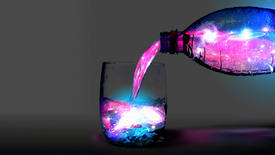What is more important to count?

kiariajodi
Posts: 7
When keep track what is the most important thing to track? Calories, sodium, sugars...? I have found that alot of low calorie things have alot of sodium in them. I know they are all important..but what should I be looking at most?
0
Replies
-
for weight loss, count your calories and stay in your limits for your goals.
For health watch the amounts in the others, too much sodium can lead to high blood pressure and other diseases as well as hold water which impedes weight loss.
Everything in balance0 -
I count my salt and sugar intake. Alot of low fat foods also have alot of sugar in them.0
-
for weight loss, count your calories and stay in your limits for your goals.
For health watch the amounts in the others, too much sodium can lead to high blood pressure and other diseases as well as hold water which impedes weight loss.
Everything in balance
This0 -
To lose weight? Calories. You don't have to eat low-calorie foods to stay under your calories. Obviously the other stuff is as important as you make it. But a calorie deficit is what allows you to lose weight. Although, too much sodium can make you retain water. But it won't prevent you from losing fat.0
-
I count my salt and sugar intake. Alot of low fat foods also have alot of sugar in them.
remember though that low fat doesnt mean low calorie.
Fat loss and weight loss are different things overall0 -
Low calorie & HIGH fiber works best for me.0
-
Calories equals weight, but I do keep track of sodium, otherwise the scale doesn't show the weight loss!0
-
I would say the most important are calories and protein. As your protein intake (along with other factors) will help determine how much lean muscle you retain while in a caloric deficit.0
-
for weight loss, count your calories and stay in your limits for your goals.
For health watch the amounts in the others, too much sodium can lead to high blood pressure and other diseases as well as hold water which impedes weight loss.
Everything in balance
I've only started on MFP in the last month or so, so I'm mostly watching my calorie intake at the moment. But I aspire to this in the long run. Great advice.0 -
I have been focusing on my calorie, fat, fiber, protein, carb and sodium intake. I think they are overall important!0
-
Calories overall.
A.C.E. Certified Personal Trainer
IDEA Fitness member
Kickboxing Certified Instructor
Been in fitness for 28+ years and have studied kinesiology and nutrition0 -
It really depends on you and your goals. Calories are most important for losing weight. If you eat a lot of processed, pre-made or packaged foods, then tracking sodium is a good idea as these are typically high in sodium. If you eat mostly whole natural foods and don't use a lot of salt when preparing them, then it's probably not necessary. If you eat a lot of sweets or sugary foods/drinks, then tracking sugar is probably a good idea. If not and most of your sugar comes from fruit, then it's probalby not necessary.0
-
I'd track what matters to YOU. At first, calories, fat, protein, sodium and carbs are good to know. Once you get a handle on your habits you can change them to anything you want. If it turns out you never go over on fat, you might stop tracking that and take a look at your calcium intake instead. I don't track my sodium because I eat very few processed foods and natural foods don't contain an excess of sodium. I stopped tracking my fiber because I was consistently over my goal and now I track potassium instead. It's all about what you find important. Fiber and sugar would be good if you're diabetic or pre-diabetic, sodium would be good if you have high blood pressure. Just remember you can customize it at any time so you're not "locked" into any particular setting. Good Luck!0
-
I would say the most important are calories and protein. As your protein intake (along with other factors) will help determine how much lean muscle you retain while in a caloric deficit.
This.
I track calories, carbs, protein, fat, sodium, and iron.
To me, sugar = carbs and I already track those, so I don't even bother watching sugar.0 -
That's the calories overall that matters. But I watch carbs, proteins and fat, and make sure on a day they fit my goal
 0
0 -
Calories are most important, but sodium can really get you
Even some home-cooked meals can make you go over in sodium. A great example is a stir fry - the vege is GREAT and low calorie, but if you use soy sauce, your sodium intake can go through the roof. This will only show on the scale as water weight, but a consistently high sodium diet is dangerous for other reasons.0 -
The calories count. Big time. The others should maintain a balance, unless you have other factors - diabetes, gluten intolerance, high BP, renal disorders, etc.
I'm a diabetic so I pretty much micromanage my calories, macros AND micros. But that's just me.0 -
I track macro's primarily, if I meet my macro goals the calories take care of themselves.0
This discussion has been closed.
Categories
- All Categories
- 1.4M Health, Wellness and Goals
- 393.9K Introduce Yourself
- 43.9K Getting Started
- 260.3K Health and Weight Loss
- 176K Food and Nutrition
- 47.5K Recipes
- 232.6K Fitness and Exercise
- 429 Sleep, Mindfulness and Overall Wellness
- 6.5K Goal: Maintaining Weight
- 8.6K Goal: Gaining Weight and Body Building
- 153.1K Motivation and Support
- 8.1K Challenges
- 1.3K Debate Club
- 96.4K Chit-Chat
- 2.5K Fun and Games
- 3.8K MyFitnessPal Information
- 15 News and Announcements
- 1.2K Feature Suggestions and Ideas
- 2.6K MyFitnessPal Tech Support Questions














